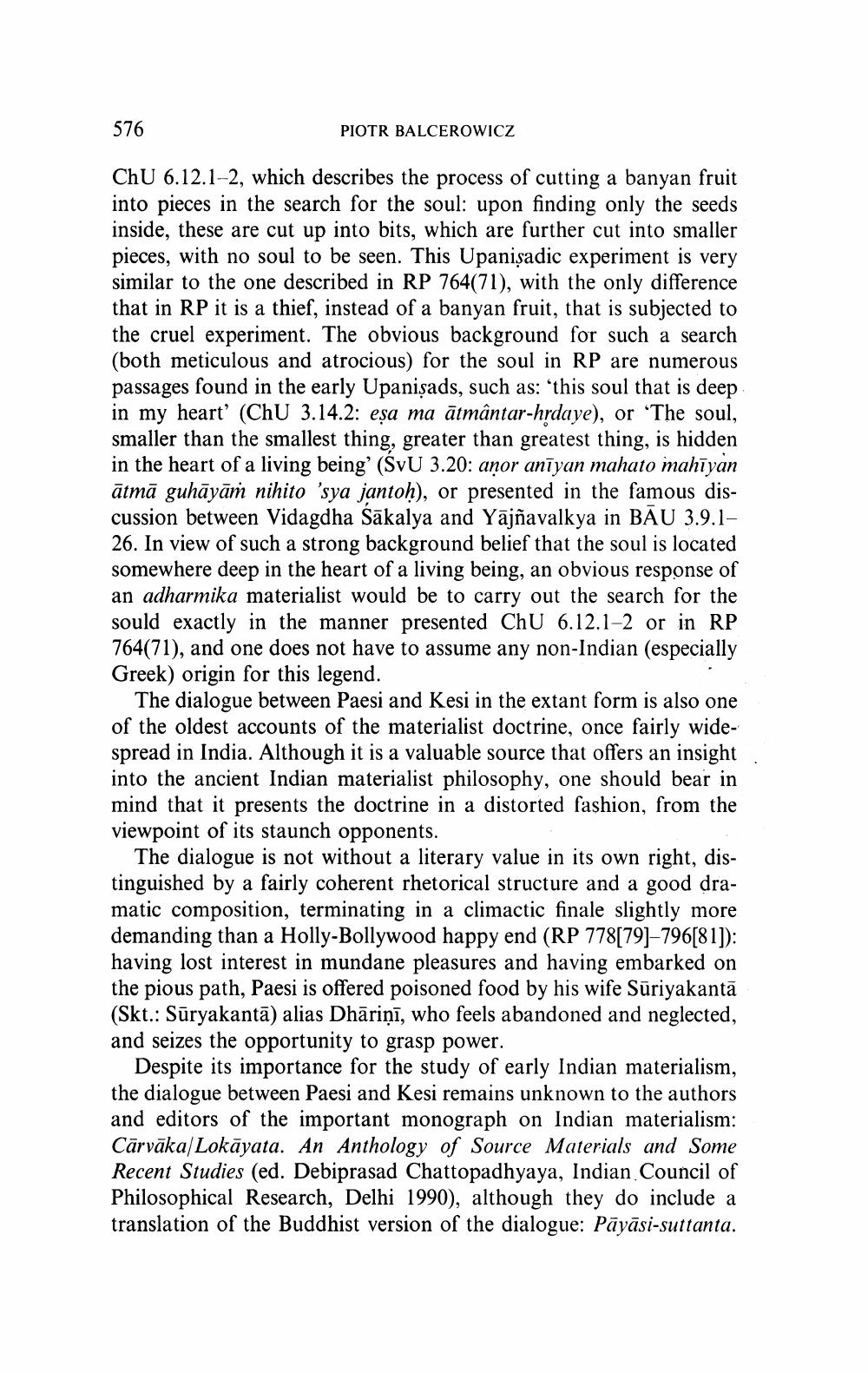Book Title: Monks Monarchs And Materialists Author(s): Piotr Balcerowicz Publisher: Piotr Balcerowicz View full book textPage 6
________________ 576 PIOTR BALCEROWICZ ChU 6.12.1-2, which describes the process of cutting a banyan fruit into pieces in the search for the soul: upon finding only the seeds inside, these are cut up into bits, which are further cut into smaller pieces, with no soul to be seen. This Upanişadic experiment is very similar to the one described in RP 764(71), with the only difference that in RP it is a thief, instead of a banyan fruit, that is subjected to the cruel experiment. The obvious background for such a search (both meticulous and atrocious) for the soul in RP are numerous passages found in the early Upanisads, such as: 'this soul that is deep in my heart' (ChU 3.14.2: esa ma ātmântar-hrdaye), or ‘The soul, smaller than the smallest thing, greater than greatest thing, is hidden in the heart of a living being' (SVU 3.20: anor anīyan mahato mahīyan ātmā guhāyām nihito 'sya jantoh), or presented in the famous discussion between Vidagdha Sākalya and Yājñavalkya in BĀU 3.9.126. In view of such a strong background belief that the soul is located somewhere deep in the heart of a living being, an obvious response of an adharmika materialist would be to carry out the search for the sould exactly in the manner presented ChU 6.12.1–2 or in RP 764(71), and one does not have to assume any non-Indian (especially Greek) origin for this legend. The dialogue between Paesi and Kesi in the extant form is also one of the oldest accounts of the materialist doctrine, once fairly widespread in India. Although it is a valuable source that offers an insight into the ancient Indian materialist philosophy, one should bear in mind that it presents the doctrine in a distorted fashion, from the viewpoint of its staunch opponents. The dialogue is not without a literary value in its own right, distinguished by a fairly coherent rhetorical structure and a good dramatic composition, terminating in a climactic finale slightly more demanding than a Holly-Bollywood happy end (RP 778[79]–796[81]): having lost interest in mundane pleasures and having embarked on the pious path, Paesi is offered poisoned food by his wife Sūriyakantā (Skt.: Sūryakantā) alias Dhāriņī, who feels abandoned and neglected, and seizes the opportunity to grasp power. Despite its importance for the study of early Indian materialism, the dialogue between Paesi and Kesi remains unknown to the authors and editors of the important monograph on Indian materialism: Cārvāka Lokāyata. An Anthology of Source Materials and Some Recent Studies (ed. Debiprasad Chattopadhyaya, Indian Council of Philosophical Research, Delhi 1990), although they do include a translation of the Buddhist version of the dialogue: Pāyāsi-suttanta.Page Navigation
1 ... 4 5 6 7 8 9 10 11 12
